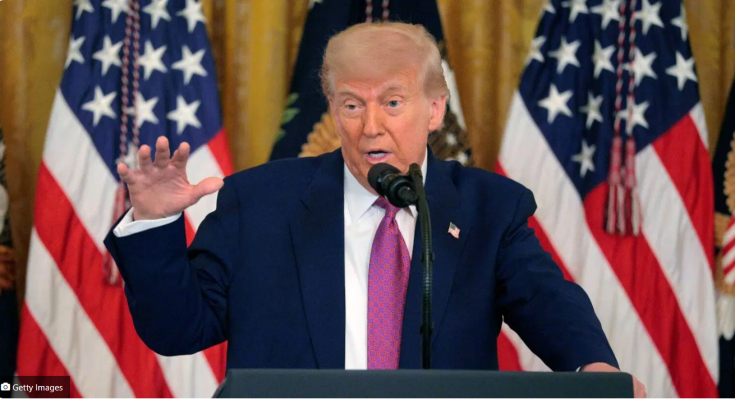President Donald Trump signed the GENIUS Act into law, aiming to solidify American leadership in global banking and cryptocurrency technologies.
While speaking at an event, Trump thanked numerous political and corporate players for their contributions to the bill’s passage and overall government efforts. The signing was a significant win for the Bitcoin industry, which has previously experienced mistrust.
Trump emphasized the move was a significant policy departure from former President Joe Biden’s administration and noted that former SEC Chair Gary Gensler was removed to create a more favorable regulatory climate for cryptocurrency.
“I remember, I did this and I said this, and I mentioned this name and I got the greatest applause of the whole campaign. We fired Joe Biden’s SEC Chair Gary Gensler. We fired him. (applause) But, I remember, I was making this speech and, you know, it was just a line in the speech. And I said, and I will fire Gary Gensler — the place exploded,” Trump said.
“I said — I finished, I said, what the hell did that guy do? There was — there was a lot of hatred there, I’ll tell you. And it turned out, as I got familiar with everything, it turned out you were absolutely right,” he added.
WATCH:
“It is a major milestone. It establishes, for the first time, a regulatory regime for stablecoins, a rapidly developing financial product and industry,” said Andrew Olmem, a managing partner at law firm Mayer Brown and the former deputy director of the National Economic Council during Trump’s first term.
Crypto traders frequently utilize stablecoins, a kind of cryptocurrency created to maintain a steady value, typically a 1:1 dollar peg, to transfer money between tokens. Stablecoins, according to their proponents, can facilitate immediate payments and have seen a significant increase in use in recent years.
The stablecoin bill, if it becomes law, would mandate that tokens be backed by liquid assets, such as short-term Treasury bills and US dollars, and that issuers reveal to the public the makeup of their reserves every month.
The cryptocurrency sector has long advocated for lawmakers to enact laws establishing regulations for digital assets, claiming that a well-defined framework may facilitate the wider use of stablecoins. The industry attempted to portray the issue as bipartisan and invested over $119 million in supporting pro-crypto congressional candidates in the previous year’s elections.
The House passed a stablecoin measure last year, but the Senate, then controlled by Democrats, did not take it up, and it died.
After seeking cryptocurrency revenue throughout his presidential campaign, Trump has attempted to significantly alter U.S. cryptocurrency regulations.
Bo Hines, the head of Trump’s Council of Advisers on Digital Assets, stated that the White House aims to pass a stablecoin measure by August.
Trump noted that during the 2024 campaign, he became the first presidential candidate in history to speak at the Bitcoin Conference.
“And at that time, crypto builders and founders were under relentless assault by the Biden administration, which was trying to crush your industry. … and I got the greatest applause of the whole campaign. We fired Joe Biden’s SEC chair, Gary Gensler. We fired him,” he said to cheers from the crowd in the East Room.
Robinhood CEO Vlad Tenev, who attended the event, said he was impressed by how quickly the administration has been collaborating with Congress.
“This is a lot of legislation and it’s complex, and the partnership and collaboration with industry has also been quite strong,” Tenev told the Washington Times.
“I know a lot of people quibble about some details, and there’s always things that could be improved, but I think it’s been incredibly strong,” he said. “It’s a great start to making the US the global leader in digital assets.”
Other tech industry leaders at the event included Dave Ripley of Kraken, Brian Armstrong of Coinbase, Paolo Ardoino of Tether, Jeremy Allaire of Circle, and Cameron and Tyler Winklevoss of Gemini Exchange.



